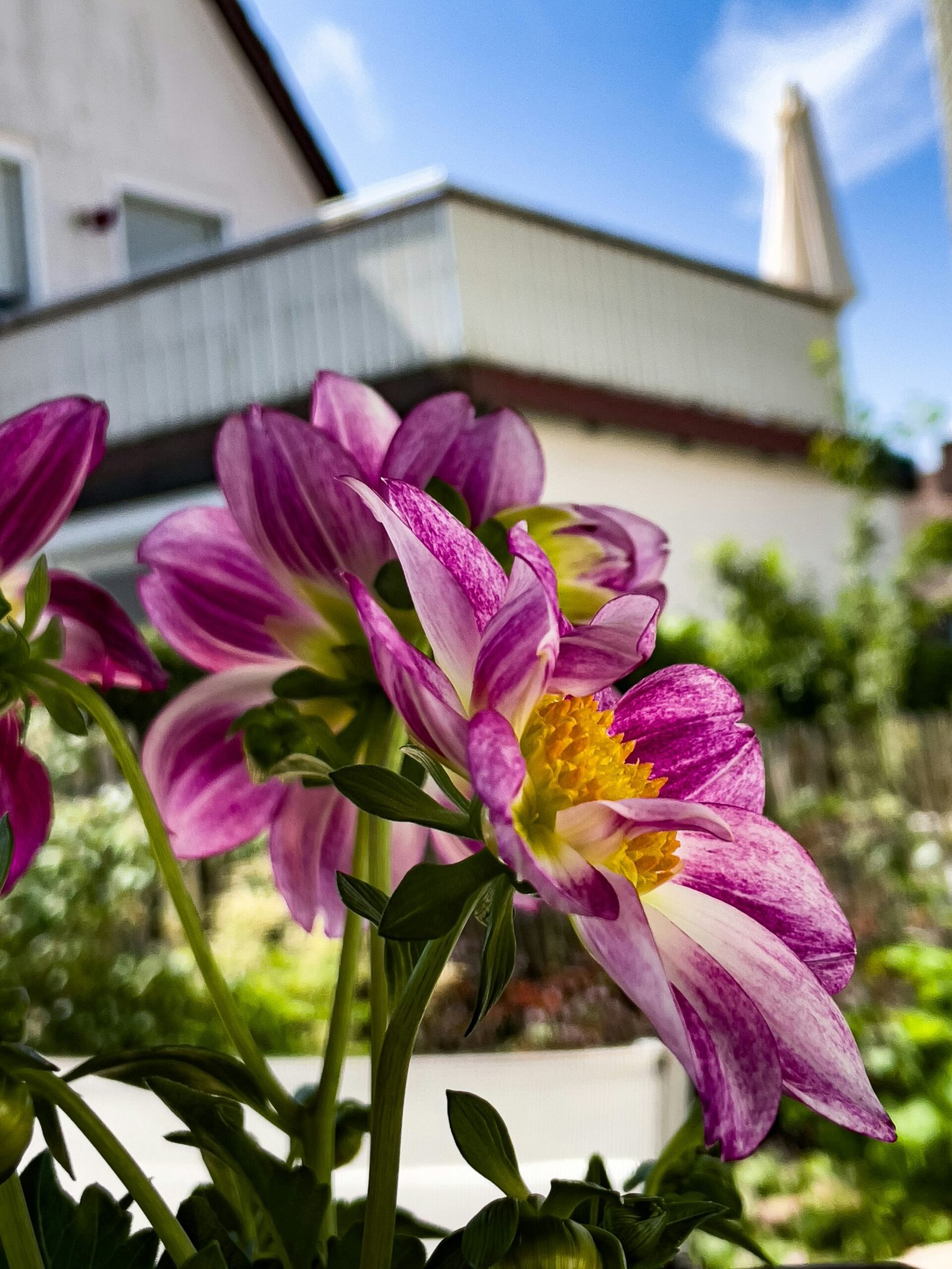Introduction to Eco-Friendly Insecticides
In the world of gardening, the use of eco-friendly insecticides has gained significant traction, particularly among those who practice organic gardening. These products are designed to control pests while minimizing harm to the environment and the health of those who utilize them. Unlike conventional insecticides, which often contain harmful chemicals that can leach into the soil and water supply, best eco-friendly insecticides are derived from natural sources and are formulated to target specific pests without harming beneficial insects and local ecosystems.
The importance of adopting eco-friendly insecticides in gardening cannot be overstated. Conventional pest control methods may offer quick results, but they often come with long-term consequences, including environmental degradation and adverse health effects. In contrast, natural pest control solutions promote sustainability by emphasizing the use of organic insecticide solutions, enabling gardeners to effectively manage pests while adhering to principles of environmental stewardship. Furthermore, the growing awareness and demand for non-toxic pest control methods reflect a shift towards practices that prioritize health, both for individuals and the planet.
Eco-friendly insecticides can be derived from various natural substances, such as plants, minerals, and even beneficial bacteria. These ingredients work to disrupt pests’ life cycles, deter their feeding habits, or even promote pest mortality, all while remaining safe for human health and local wildlife. Additionally, many of these natural insecticides are biodegradable, thus reducing their environmental footprint. As gardeners increasingly seek alternatives to chemical pesticides, the use of organic pest control methods has become a preferred choice for those wanting to maintain healthy gardening practices. Adopting safe insecticides not only enhances garden health but also aligns with broader efforts for sustainable agriculture.
Understanding Integrated Pest Management (IPM)
Integrated Pest Management (IPM) is a comprehensive approach to pest control that seeks to minimize the impact of pests while maintaining an environmentally friendly and sustainable gardening practice. By utilizing a combination of strategies, IPM allows gardeners to address pest infestations effectively while reducing reliance on chemical pesticides. The core principle of IPM is the understanding that pests can be managed through careful monitoring, prevention, and the judicious use of eco-friendly insecticides when necessary.
Monitoring is a critical first step in the IPM process. Gardeners are encouraged to regularly inspect their plants for signs of pest activity. This proactive approach not only helps in identifying the type of pest affecting the plants but also allows for timely intervention before the problem escalates. By observing pest populations and their ecological dynamics, gardeners can make informed decisions regarding the management of these organisms. This means considering factors such as weather conditions, plant health, and pest life cycles, all of which play important roles in effectively managing pest populations.
Prevention is another fundamental principle of IPM. This entails implementing cultural practices that promote plant health and resilience, such as crop rotation, companion planting, and maintaining soil fertility. By creating a strong agroecosystem, plants can better withstand pest attacks, thereby reducing the need for intervention. When pest populations are managed through these preventive measures, the reliance on chemical solutions diminishes significantly.
Lastly, the use of eco-friendly insecticides is reserved as a last resort in the IPM framework. These safe insecticides, including various types of natural insecticides, provide organic pest control options that are less harmful to the environment. By integrating these organic insecticide solutions into their pest management efforts, gardeners can ensure a balanced approach that emphasizes sustainability and ecological integrity. In conclusion, IPM fosters a harmonious relationship between plants, pests, and the surrounding environment, advocating for the use of non-toxic pest control methods to achieve optimal gardening outcomes.
Types of Eco-Friendly Insecticides
In the quest for sustainable gardening, many homeowners are turning to the best eco-friendly insecticides that offer effective organic pest control without harming the environment. Several categories of these insecticides are available, each utilizing different methods to combat pests while maintaining safety and efficacy.
One prominent type is botanical insecticides, which are derived from plants. These natural insecticides can target specific pests by either disrupting their life cycle or deterring them entirely. For instance, pyrethrin, extracted from chrysanthemum flowers, is effective against a wide range of insects due to its neurotoxic properties. Other plant-based options, such as essential oils like peppermint and clove, can repel pests while being safe for plants and humans alike.
Another category is insecticidal soaps, which consist of natural plant oils and fats. When sprayed on insects, these soaps penetrate the outer layer of pests, leading to dehydration. They are particularly effective for aphids, mites, and whiteflies and are safe for most plants and beneficial insects when used according to guidelines.
Neem oil, derived from the seeds of the neem tree, offers multiple benefits in pest control. It acts as both a repellent and a growth regulator, making it especially effective against pests such as aphids, spider mites, and mealybugs. Its natural insecticide properties disrupt the feeding and reproductive patterns of these insects while ensuring safety for the environment.
Diatomaceous earth is another natural pesticide made from fossilized algae. It works by damaging the exoskeletons of insects, leading to dehydration and death. This method is particularly useful against crawling insects like ants and cockroaches, and it is safe for plants, animals, and humans.
Lastly, beneficial microorganisms, such as Bacillus thuringiensis (Bt), serve as a non-toxic pest control option. This bacterium specifically targets caterpillars and certain beetle larvae, effectively controlling their populations without affecting beneficial insects or pollinators.
These variants of eco-friendly insecticides present diverse and effective strategies for maintaining healthy gardens through natural pest control, paving the way for safe gardening practices.
Top Eco-Friendly Insecticides for Organic Gardening
Choosing the right eco-friendly insecticides is essential for anyone committed to organic gardening. These products allow for effective pest management without compromising the safety of the environment or human health. Below is a curated list of some of the best eco-friendly insecticides available in today’s market, along with their active ingredients, recommended use cases, and necessary safety precautions.
1. Neem Oil – Neem oil is derived from the seeds of the neem tree and contains azadirachtin, a natural insect growth regulator. It is particularly effective against aphids, whiteflies, and spider mites. To use neem oil, mix it with water and apply it as a foliar spray during the evening to avoid direct sunlight. Safety precautions include wearing gloves and ensuring proper ventilation during application.
2. Diatomaceous Earth – Composed of fossilized aquatic organisms, diatomaceous earth works by dehydrating pests that come into contact with it. It is safe for pets and humans but is lethal for crawling insects like ants, slugs, and beetles. Apply it dry to the areas affected by pests, taking care to reapply after rain or watering your plants, and use a mask to avoid inhalation during application.
3. Insecticidal Soap – This simple and effective product is made from plant oils and fats. Insecticidal soap targets soft-bodied pests, including aphids, thrips, and mealybugs. For application, mix the soap with water and spray it directly on the insects. Ensure thorough coverage, and avoid using it on stressed plants or during hot weather.
4. Garlic Spray – A natural repellent, garlic spray can deter various pests with its strong odor. It can be made at home by blending garlic cloves with water, straining, and diluting before use. This spray is best used against pests such as aphids, whiteflies, and caterpillars. It should be applied in the evenings to minimize the strong smell during the day and should not be used on flowering plants to protect beneficial pollinators.
When utilizing these safe insecticides, always follow the manufacturer’s instructions to ensure effectiveness while minimizing any risks. Always prioritize safety when applying these natural pest control solutions to maintain your organic garden’s health and productivity.
Homemade Eco-Friendly Insecticide Recipes
Creating your own eco-friendly insecticides at home can be an effective way to manage pests while ensuring the safety of your garden environment. Here are several simple recipes utilizing common household ingredients that provide organic pest control without the use of harmful chemicals.
1. Soap and Water Solution
This classic recipe works well against soft-bodied insects like aphids and spider mites. Combine 2 tablespoons of liquid castile soap or any mild dish soap with 1 quart of water. Mix thoroughly and pour it into a spray bottle. Spray directly onto affected plants, ensuring coverage on both the tops and undersides of leaves. Reapply every few days until pests are eliminated.
2. Garlic Insect Repellent
Garlic possesses powerful natural insect-repelling properties. To make this solution, blend 2 whole bulbs of garlic with 1 quart of water. Strain the mixture and add 1 tablespoon of liquid soap. Pour the solution into a spray bottle and apply it to plants every week to ward off pests effectively.
3. Chili Pepper Spray
Chili peppers can deter a wide range of pests, making them a potent option in your organic insecticide arsenal. Combine 1 tablespoon of cayenne or crushed red pepper with 1 quart of water. Allow the mixture to sit overnight, strain it, and add a few drops of soap to help it adhere to plant surfaces. Spray as needed to keep insects at bay.
Each of these eco-friendly insecticides offers a safe, non-toxic pest control alternative that utilizes readily available ingredients. For best results, always test new solutions on a small area of your plants first to ensure there are no adverse reactions. These homemade insecticides not only help create a safer gardening environment but also promote organic practices in pest management.
Advantages of Using Eco-Friendly Insecticides
The use of eco-friendly insecticides has gained prominence within sustainable gardening and agricultural practices. One of the most notable advantages is their low toxicity to both humans and pets. Unlike conventional insecticides, which often contain harmful chemicals, eco-friendly options are derived from natural substances that pose minimal risk to human health. This represents a significant advantage, particularly for families with children and pets, allowing for safer use in residential gardens.
In addition to being safe for human contact, eco-friendly insecticides minimize their environmental impact. Traditional insecticides can lead to pollution of soil and waterways, posing risks to beneficial organisms such as pollinators and aquatic life. In contrast, natural insecticides are formulated to break down more quickly, reducing the chance of prolonged environmental damage. This aspect is crucial for maintaining a balanced ecosystem, as it supports the health of diverse species that contribute to the overall vitality of the garden.
Another key benefit of using these products is their role in promoting biodiversity. Eco-friendly insecticides often target specific pests without harming beneficial insects, such as ladybugs and bees. This selective action not only helps control pest populations but also sustains the presence of species that engage in natural pest control and pollination. The incorporation of biodiversity into gardening practices is fundamental to sustainable agriculture, as it enhances soil health and boosts crop resilience.
Furthermore, the adoption of organic insecticide solutions aligns with the growing demand for sustainable and non-toxic pest control methods. Gardeners are increasingly aware of the impact their choices have on the environment and are turning towards options that reflect these values. In conclusion, the benefits of using eco-friendly insecticides extend beyond mere pest control; they contribute to healthier gardens, safer ecosystems, and sustainable agricultural practices.
How to Apply Eco-Friendly Insecticides Safely
Applying eco-friendly insecticides is an effective method for organic pest control, but it is crucial to do so safely to protect both the applicator and the surrounding environment. First and foremost, wearing appropriate protective gear is essential. This may include gloves, goggles, and a mask to safeguard against potential irritation or allergic reactions. Such precautions ensure that the application process does not inadvertently lead to harm to the user.
Timing is another critical factor when applying these safe insecticides. It is advisable to perform applications during early morning or late evening when the temperatures are cooler and beneficial insects are less active. This practice minimizes potential harm to pollinators such as bees, which are vital for many ecosystems. Furthermore, applying insecticides during calm weather can help prevent drift onto non-target plants and areas, ensuring that the application remains effective and environmentally responsible.
When choosing the best eco-friendly insecticides, it is essential to read the product labels carefully. Some organic pest control solutions specifically mention the best application methods and rates to ensure safety and effectiveness. Concentrated forms should be diluted as instructed to prevent any negative consequences on your plants or soil. Moreover, integrating these natural insecticides into a broader garden management plan that includes practices such as crop rotation and companion planting can enhance overall effectiveness while reducing the reliance on chemical treatments.
Lastly, always track the impact of your applications. Observing changes in pest populations and the health of your plants can provide valuable insights into the efficacy of the applied organic insecticide solutions. By adhering to these safety practices, gardeners can effectively utilize natural pest control methods while promoting a sustainable gardening environment.
Success Stories: Case Studies of Eco-Friendly Pest Control
In recent years, many gardeners and farmers have increasingly turned to eco-friendly insecticides as a sustainable solution for pest management. A number of successful case studies illustrate the effectiveness of these organic pest control methods, showcasing the positive impacts they have on plant health and the environment.
One notable example comes from a small organic vegetable farm located in California. The owner, Emma, struggled with aphid infestations that threatened her crop yields. After transitioning from conventional pesticides to best eco-friendly insecticides, specifically neem oil and insecticidal soap, she witnessed a remarkable turnaround. Within weeks, the aphid population decreased significantly, allowing her plants to thrive. Emma reported not only healthier crops but also increased customer demand, as consumers increasingly prefer produce grown without harmful chemicals.
Another compelling case study involves a community garden project in New York City. The garden manager, John, faced challenges with pests such as slugs and caterpillars, which were jeopardizing volunteer efforts to grow food for local food banks. By implementing a combination of non-toxic pest control strategies, including diatomaceous earth and homemade garlic spray, John noted a sharp decline in pest activity. The garden not only flourished but served as an educational space, inspiring community members to adopt natural insecticides in their home gardens.
These testimonials highlight the practicality of using organic insecticide solutions. As more gardeners and farmers share their successes, it becomes evident that eco-friendly insecticides are not only effective but also contribute to a healthier ecosystem. By choosing natural pest control options, they are fostering biodiversity while cultivating sustainable practices. The shift towards safe insecticides is a testament to the growing awareness of the importance of environmentally responsible gardening.
Conclusion: Embracing Organic Pest Control Solutions
In the pursuit of maintaining a thriving garden while minimizing environmental impacts, the adoption of best eco-friendly insecticides emerges as a crucial strategy. Throughout this blog post, we have explored various aspects of eco-friendly insecticides, highlighting their effectiveness in promoting plant health without compromising safety. Not only do these natural insecticides provide essential protection against pests, but they also align with the principles of sustainable gardening, vital for safeguarding our ecosystems.
Utilizing organic pest control methods allows gardeners to engage in non-toxic pest control practices that are beneficial for both crops and the environment. We discussed several organic insecticide solutions, whereby utilizing ingredients derived from natural sources not only combats infestations but also enriches the soil and promotes biodiversity. Such methods are paramount as they reduce the reliance on synthetic chemicals, which often pose risks to both human health and wildlife.
Furthermore, opting for safe insecticides means prioritizing the well-being of beneficial insects, such as pollinators and predatory species that naturally help maintain equilibrium within the garden. By embracing these eco-friendly solutions, gardeners can contribute to a healthier planet, ensuring that agricultural practices are sustainable for generations to come. As you reflect on your gardening choices, consider integrating these natural pest control measures to cultivate a safe and productive gardening environment.
Ultimately, the shift towards eco-friendly insecticides is not merely a trend; it represents a fundamental change in how we approach pest management. By choosing natural insecticides, you are making a conscious decision that reflects a commitment to environmental stewardship and responsible gardening practices. Together, we can foster a greener, more sustainable future through the adoption of these innovative organic solutions.



